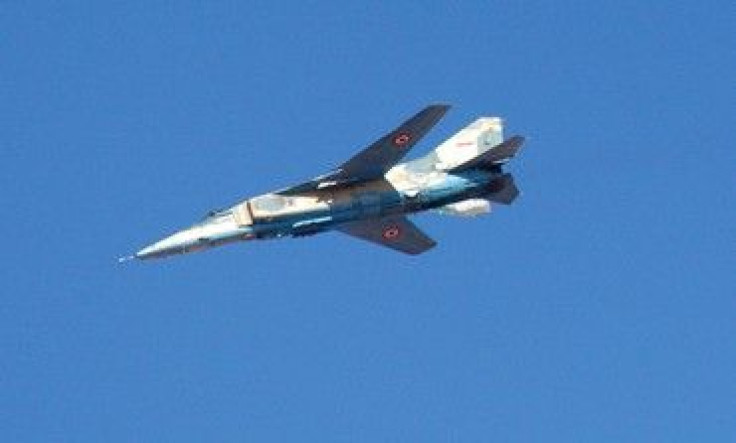Syrian Cease-fire Shattered By Violence As Airstrikes Continue

Fighting continues to rage on in Syria between the military and opposition forces on what was intended to be the fourth and last day of a cease-fire in observance of the Muslim holiday of Eid al-Adha.
Syrian jet fighters bombarded residential neighborhoods in Damascus Monday for the third day in a row since the so-called truce went into effect Friday.
U.N. General Secretary Ban Ki-moon expressed disappointment with the failure of the cease-fire, which had backed the agreement brokered by the Arab League, and called on world powers to unite in ending the violence which has taken at least 20,000 lives since the conflict began 19 months ago.
"I am deeply disappointed that the parties failed to respect the call to suspend fighting. This crisis cannot be solved with more weapons and bloodshed," he said Monday during a press conference in South Korea, the Associated Press reported.
"I remain committed to doing all I can to make this happen. As long as the international community remains at odds, the needs, attacks and suffering will only grow."
There has been a lack of consensus at the U.N. Security Council on how to respond to the conflict in Syria. The U.S., Britain and France have been critical of Syrian President Bashar al-Assad, while China and Russia have been reluctant to support a call for his resignation.
The U.N., working with aid organizations, had prepared to deliver desperately needed humanitarian assistance to Syria during the cease-fire, but ongoing fighting has prevented it.
“A great deal of thought and planning and pre-positioning has gone into this,” U.N. spokesperson Martin Nesirky said last Thursday before the cease-fire went into effect.
“We would simply fervently hope that the guns do fall silent, that there is a suspension in the violence, so that humanitarian workers can help those who are most in need.”
The cease-fire fell apart soon after it began on Friday, when a car bomb reportedly went off in Damascus, which the Syrian government took as a violation of the agreement. No particular group among the opposition forces claimed responsibility for the attack.
"No one really expected there to be a full 100 percent cease-fire. There are a number of rebel groups that had said they weren't going to observe the cease-fire. I think on the other side there wasn't 100 percent goodwill on the Assad side either," Michael Stephens, an analyst at the Royal United Services Institute, told Al-Jazeera news agency.
The Syrian military responded by firing heavy artillery into opposition-held areas heavily populated by civilians. Air strikes, began Saturday, have been carried out every day thereafter.
At least 150 people alone were reported killed on Friday, with activists reporting similar death tolls in the following days, according to the AP.
© Copyright IBTimes 2024. All rights reserved.











